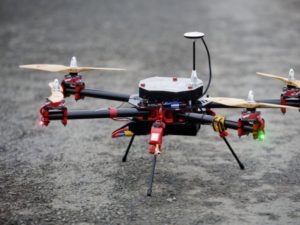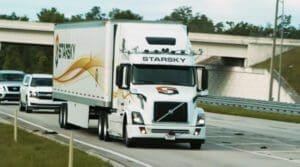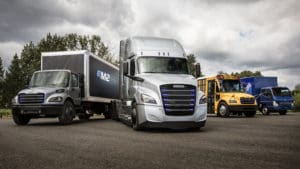 Sustainability is an initiative that thankfully more companies are taking on. One area of concern for a lot of people is around single-use coffee pods. These pods are one of the best (or worst) examples of unnecessary single-use plastics that are polluting our planet. Coffee pods can wind up in rivers where they wash into lakes and oceans. Over time, the plastic breaks down into smaller pieces that choke and kill wildlife. Well, one company has an answer for these single use pods. And yes, I am aware that many single-use pod coffee makers have sustainability measures in effect, namely selling a re-usable filter for one-time use coffee pods. The company I am talking about is taking things in a whole new direction: Vélosophy. This bike manufacturer, in conjunction with Nespresso has begun manufacturing RE:CYCLE, a bicycle made from discarded Nespresso pods. According to the two companies, the limited-edition model, which takes 300 espressos to make one, retails for €1,290 ($1,446). This is a great reminder of how consumers can understand exactly what goes into their products and how it impacts the overall environment. And now on to this week’s logistics news.
Sustainability is an initiative that thankfully more companies are taking on. One area of concern for a lot of people is around single-use coffee pods. These pods are one of the best (or worst) examples of unnecessary single-use plastics that are polluting our planet. Coffee pods can wind up in rivers where they wash into lakes and oceans. Over time, the plastic breaks down into smaller pieces that choke and kill wildlife. Well, one company has an answer for these single use pods. And yes, I am aware that many single-use pod coffee makers have sustainability measures in effect, namely selling a re-usable filter for one-time use coffee pods. The company I am talking about is taking things in a whole new direction: Vélosophy. This bike manufacturer, in conjunction with Nespresso has begun manufacturing RE:CYCLE, a bicycle made from discarded Nespresso pods. According to the two companies, the limited-edition model, which takes 300 espressos to make one, retails for €1,290 ($1,446). This is a great reminder of how consumers can understand exactly what goes into their products and how it impacts the overall environment. And now on to this week’s logistics news.
- Amazon in the news:
- Trump delays tariffs on Chinese cellphones, laptops, toys
- Tyson bets on robots for worker shortage
- Loadsmart, Starsky Robotics dispatch autonomous truck automatically
- Daimler trials automatic truck payments system
- Storms, floods cause $1.2B damage to public infrastructure
 Amazon is certainly not holding back on its plans for home delivery drones. The company has requested that federal regulators excuse it from following some current rules of flight, according to the Federal Aviation Administration (FAA). Amazon is requesting permission to use its custom MK27 drone for deliveries before the FAA grants the aircraft a certificate of airworthiness, and an exemption from drone-specific rules, including a requirement that they only be operated when an operator can see it. The company also requested to be excused from complying with aviation regulations more commonly associated with planes, such as requirements that pilots fly above certain heights, carry extra fuel, and fly with documentation including maintenance logs aboard the aircraft. The FAA will take public comments on the petition until August 28.
Amazon is certainly not holding back on its plans for home delivery drones. The company has requested that federal regulators excuse it from following some current rules of flight, according to the Federal Aviation Administration (FAA). Amazon is requesting permission to use its custom MK27 drone for deliveries before the FAA grants the aircraft a certificate of airworthiness, and an exemption from drone-specific rules, including a requirement that they only be operated when an operator can see it. The company also requested to be excused from complying with aviation regulations more commonly associated with planes, such as requirements that pilots fly above certain heights, carry extra fuel, and fly with documentation including maintenance logs aboard the aircraft. The FAA will take public comments on the petition until August 28.
Amazon is taking more control over the entire final mile delivery process. There is one aspect of final mile that is often overlooked – the time when a package is placed on your doorstep and you bring it inside. Amazon has thought of a way to handle that as well, with its acquisition of video doorbell security company Ring in 2018. The smart doorbell lets people remotely see, hear, and talk to whoever is at their door. It also records porch thefts that users can post footage of on Ring’s social media app, Neighbors, or share with increasingly involved police departments. I’ve certainly seen my fair share of Ring videos on y social media loop. Amazon is fighting back by promoting its ability to deter package theft through fear-based social media campaigns. As e-commerce continues to grow, the threat of package theft will only increase.
 As rhetoric around the increasing trade war with China increased, President Trump has delayed tariffs on Chinese cellphones, laptops, and toys. Initially, the US was set to impose a 10 percent tariff on September 1 for these goods. The delay which, affects about half of the $300 billion target list of Chinese goods sent stocks sharply higher and drew cautious relief from retailers and technology groups. This is also coupled with news that the two countries will renew trade discussions, with a hopeful outcome of ending the trade war. According to President Trump, “we’re doing this for Christmas season, just in case some of the tariffs would have an impact on U.S. customers. Just in case they might have an impact on people, what we’ve done is we’ve delayed it so that they won’t be relevant to the Christmas shopping season.”
As rhetoric around the increasing trade war with China increased, President Trump has delayed tariffs on Chinese cellphones, laptops, and toys. Initially, the US was set to impose a 10 percent tariff on September 1 for these goods. The delay which, affects about half of the $300 billion target list of Chinese goods sent stocks sharply higher and drew cautious relief from retailers and technology groups. This is also coupled with news that the two countries will renew trade discussions, with a hopeful outcome of ending the trade war. According to President Trump, “we’re doing this for Christmas season, just in case some of the tariffs would have an impact on U.S. customers. Just in case they might have an impact on people, what we’ve done is we’ve delayed it so that they won’t be relevant to the Christmas shopping season.”
 As the US meat worker shortage continues to grow, Tyson Foods is betting on robots to get past the issue. While a normal meat has human workers completing manual tasks such as stacking pallets packing food, Tyson thinks that robots are the answer. The company has built the 26,000-square-foot, multi-million-dollar Tyson Manufacturing Automation Center near its headquarters in Springdale, AR where engineers will apply the latest advances in machine learning to meat manufacturing, with the goal of eventually eliminating jobs that can be physically demanding, highly repetitive and at times dangerous. At Tyson’s new facility, a series of laboratories showcase different types of robots. Mechanical arms in glass cases use smart cameras to sort colorful objects or stack items. In another room, a larger machine called a palletizer performs stacking tasks.
As the US meat worker shortage continues to grow, Tyson Foods is betting on robots to get past the issue. While a normal meat has human workers completing manual tasks such as stacking pallets packing food, Tyson thinks that robots are the answer. The company has built the 26,000-square-foot, multi-million-dollar Tyson Manufacturing Automation Center near its headquarters in Springdale, AR where engineers will apply the latest advances in machine learning to meat manufacturing, with the goal of eventually eliminating jobs that can be physically demanding, highly repetitive and at times dangerous. At Tyson’s new facility, a series of laboratories showcase different types of robots. Mechanical arms in glass cases use smart cameras to sort colorful objects or stack items. In another room, a larger machine called a palletizer performs stacking tasks.
 Loadsmart and Starsky Robotics said the companies have automatically dispatched an autonomous truck to haul freight. According to the two companies, the truck was successfully priced, tendered and booked via Loadsmart. It then picked up and delivered the shipment in Texas in late July using Starsky Robotics’ self-driving technology. Company officials said the integration of Loadsmart’s artificial intelligence and load-matching technology with Starsky Robotics’ application programming interface meant no human intervention was required. The initiative is part of a larger partnership to establish autonomous brokerages dispatching freight to autonomous trucks without human involvement. Talk about automation – these companies are autonomously dispatching autonomous trucks.
Loadsmart and Starsky Robotics said the companies have automatically dispatched an autonomous truck to haul freight. According to the two companies, the truck was successfully priced, tendered and booked via Loadsmart. It then picked up and delivered the shipment in Texas in late July using Starsky Robotics’ self-driving technology. Company officials said the integration of Loadsmart’s artificial intelligence and load-matching technology with Starsky Robotics’ application programming interface meant no human intervention was required. The initiative is part of a larger partnership to establish autonomous brokerages dispatching freight to autonomous trucks without human involvement. Talk about automation – these companies are autonomously dispatching autonomous trucks.
 Speaking of autonomous trucks, all the buzz has been around replacing the driver. Well, Daimler Trucks is looking at a whole new means of autonomous trucks. The company has developed a digital Truck-ID system and associated Truck Wallet. Trucks can identify themselves to other machines using their Truck-ID as if they had their own integrated ID card and can thus provide a unique signature for specific processes. The Truck Wallet works as a platform technology and central user program for all applications which can access the Truck-ID for various purposes. This will allow trucks to make automatic payments at electric charging stations, for example. It is just the latest technology in the connected truck world that will continue to reduce manual tasks.
Speaking of autonomous trucks, all the buzz has been around replacing the driver. Well, Daimler Trucks is looking at a whole new means of autonomous trucks. The company has developed a digital Truck-ID system and associated Truck Wallet. Trucks can identify themselves to other machines using their Truck-ID as if they had their own integrated ID card and can thus provide a unique signature for specific processes. The Truck Wallet works as a platform technology and central user program for all applications which can access the Truck-ID for various purposes. This will allow trucks to make automatic payments at electric charging stations, for example. It is just the latest technology in the connected truck world that will continue to reduce manual tasks.
 And finally, the busy storm season of 2019 has caused significant infrastructure damage throughout the US, causing delays for trucks and railroads, while leading to massive overhauls in said infrastructure. The Associated Press tallied about $1.2 billion of damage in 24 states based on preliminary assessments of public infrastructure categories established by the Federal Emergency Management Agency. The tally includes damage to roads and bridges, utilities, water control facilities, public buildings and equipment, and parks. The total figures are likely to rise because several states haven’t completed damage assessments for recent disasters. And this is only for the first half of the year. As storms seem to be getting stronger, it will be interesting to monitor this trend over the second half of the year.
And finally, the busy storm season of 2019 has caused significant infrastructure damage throughout the US, causing delays for trucks and railroads, while leading to massive overhauls in said infrastructure. The Associated Press tallied about $1.2 billion of damage in 24 states based on preliminary assessments of public infrastructure categories established by the Federal Emergency Management Agency. The tally includes damage to roads and bridges, utilities, water control facilities, public buildings and equipment, and parks. The total figures are likely to rise because several states haven’t completed damage assessments for recent disasters. And this is only for the first half of the year. As storms seem to be getting stronger, it will be interesting to monitor this trend over the second half of the year.
That’s all for this week. Enjoy the weekend and the song of the week, Jack Johnson’s The 3 R’s.

















